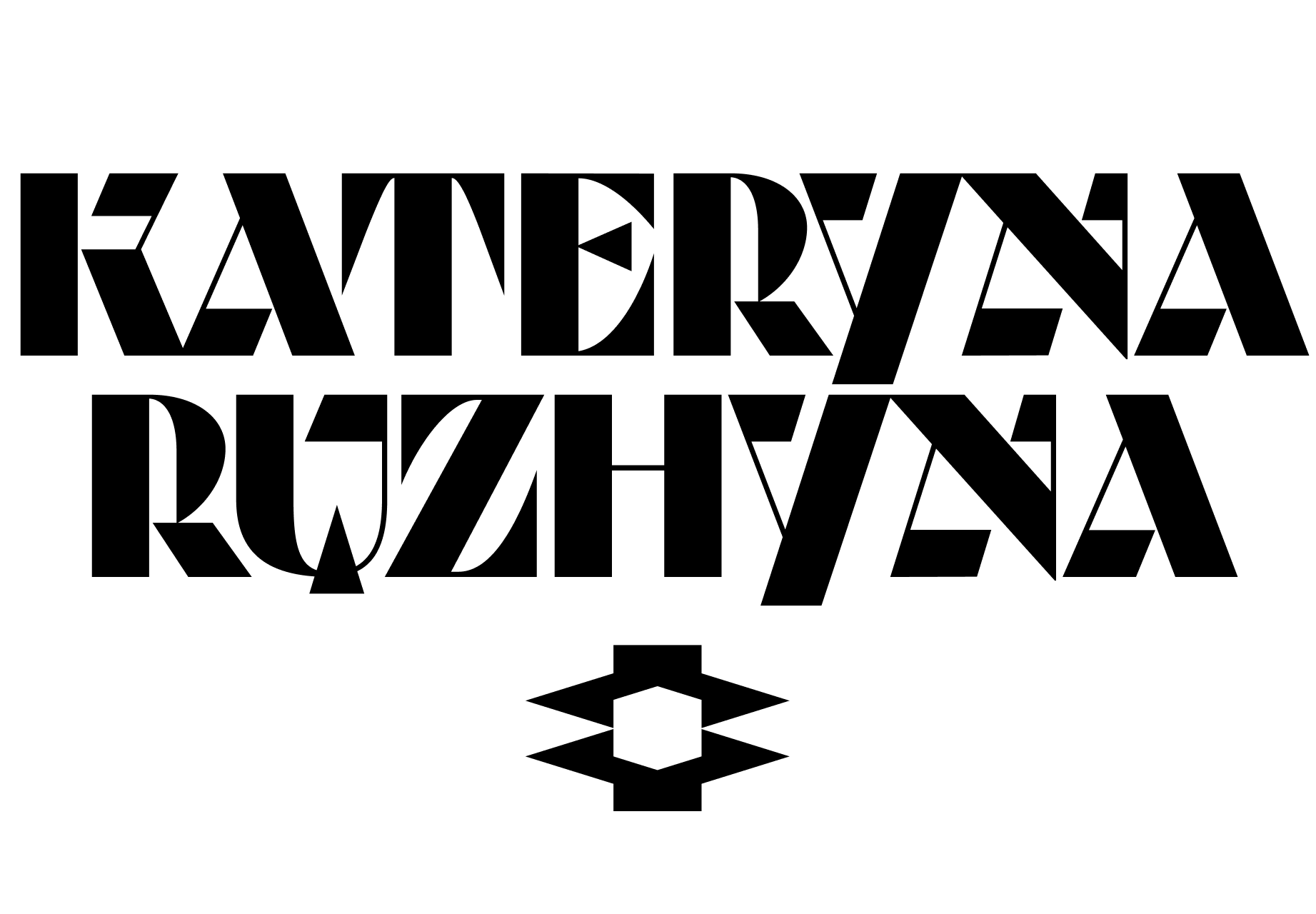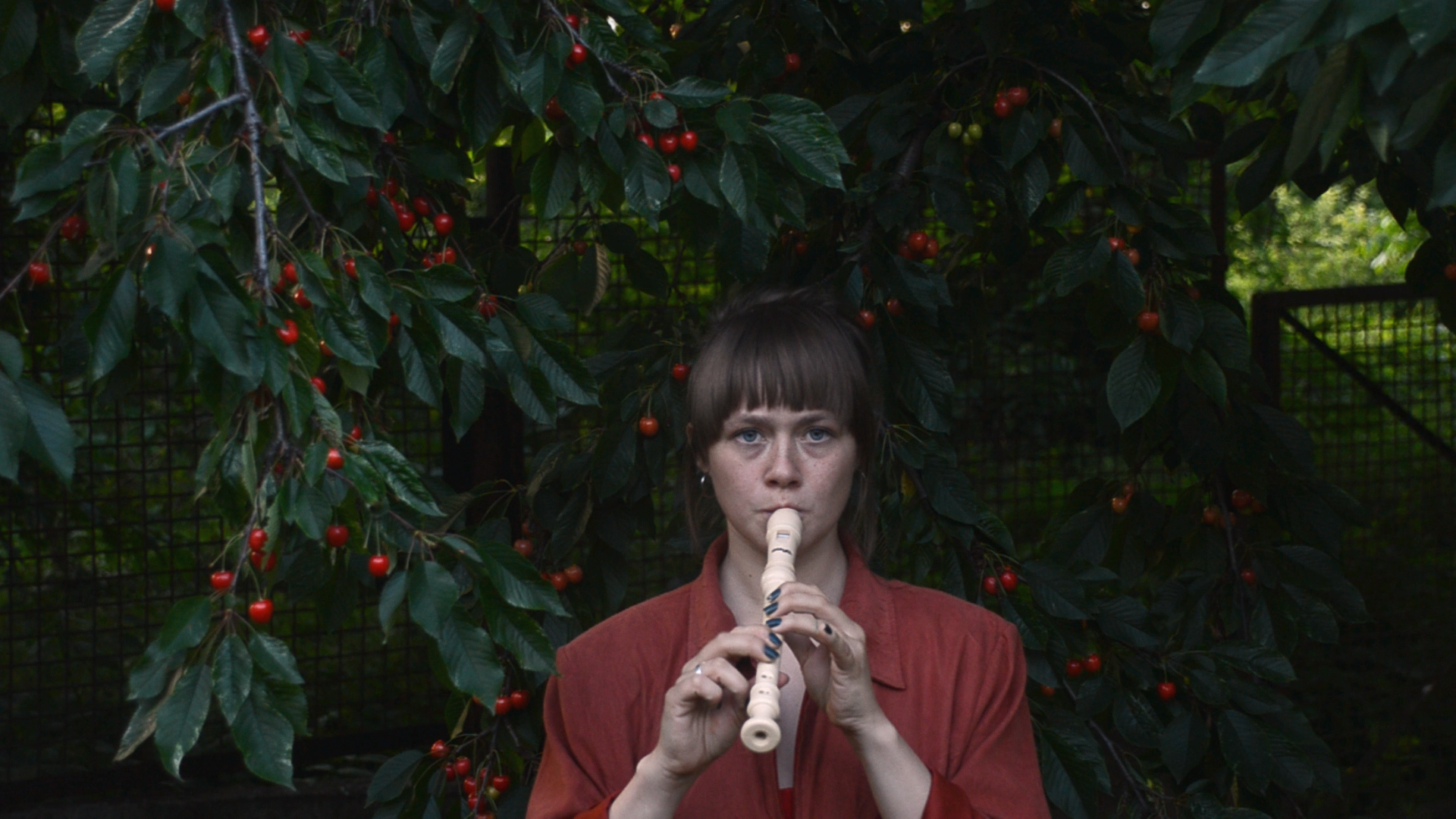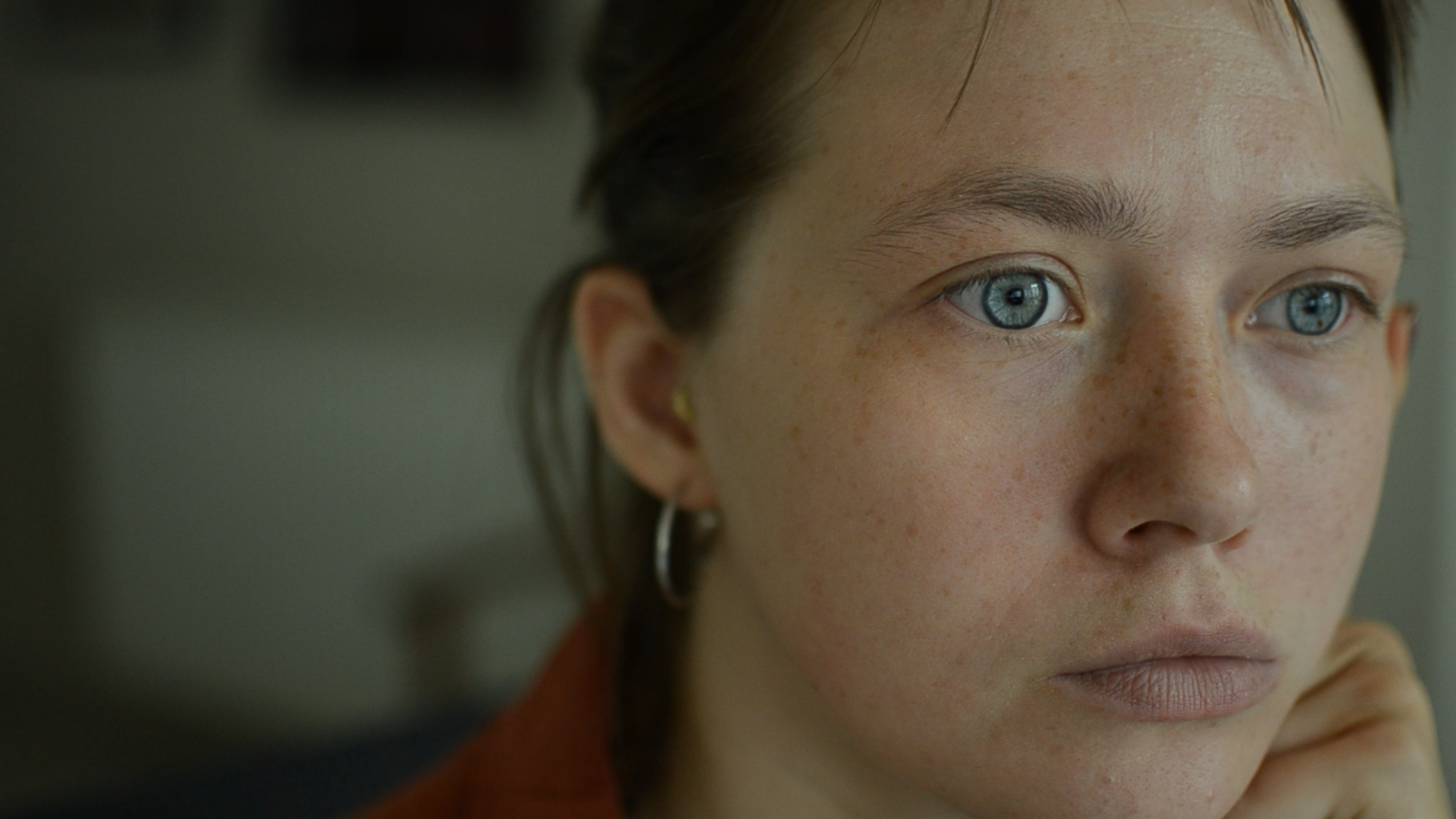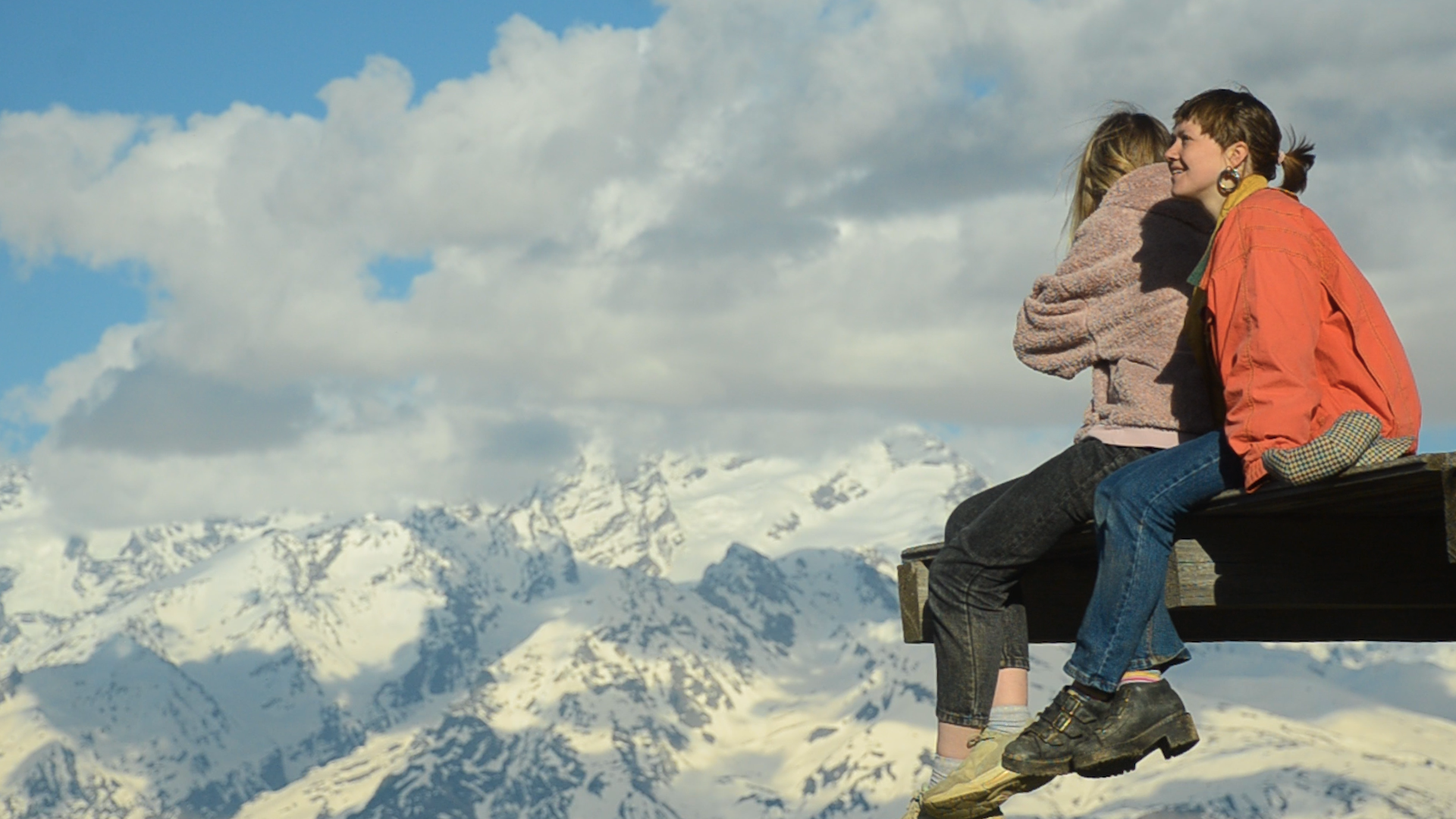Kateryna Ruzhyna / Катерина Ружина was born in 1995 in Zaporizhzhia in the southeast of Ukraine. In 2013, she moved to Prague for her university studies. Between 2014–2017, she completed her bachelor’s degree in Art History at the Faculty of Arts, Charles University, and continued her studies in the same field in the master’s program at UMPRUM (Academy of Arts, Architecture and Design in Prague). She decided to use her background in art theory in the film industry – first as a costume designer for short films and a production manager, then as a student of FAMU in Prague (since 2023) and director of documentary films. In 2023, she directed her debut short documentary AVITAMINOSIS. It is the author’s self-portrait that charts a difficult period during the covid lockdown that forced her to work in an illicit call center and eventually to an impulsive relocation to Georgia. The film had its world premiere at DocLisboa and since then, it has been presented at many Czech and foreign festivals and won several awards. Kateryna Ruzhyna is currently working to establish an artists’ collective supporting Ukrainian artists that live in Prague.
In her practice, as evidenced by her professional and academic resume, Kateryna combines theoretical background with artistic work via the medium of a documentary film. She focuses on autobiography, introspection and capturing one’s own identity that is seamlessly fused with her home, Ukraine, and her situation as an emigrant. She approaches filmmaking within the film industry critically, while also applying the same perspective when constructing narratives in her own works.
VERONIKA SOUKUPOVÁ’S INTERVIEW WITH KATERYNA RUZHYNA, CONDUCTED VIA EMAIL, AUGUST 2024
Veronika Soukupová: Where exactly are you from? What is happening in your hometown right now? Is your family with you in Prague? Under what circumstances did you come to Prague and why did you choose UMPRUM?
Kateryna Ruzhyna: I come from Zaporizhzhia, where I had lived until I turned 18. Zaporizhzhia is currently a frontline city, it’s located thirty kilometers from the active warzone – the entire area south of the city is occupied. The last time I visited home was September last year. Unfortunately, such visits no longer bring joyful moments as they used to. On the contrary, they evoke a depressing sense of a disappearing city and its frozen development. I moved to Prague in 2013 on my own to study. First, I studied art history at FF UK, then I decided to follow up with a master’s degree in theory at UMPRUM.
VS: How do you feel about Prague and the Czech Republic? Do you feel good here? Have you encountered any issues?
KR: If I don’t count the shorter stays in other countries (I lived in Georgia, but also spent almost a year in Ukraine), I have lived in Prague for nearly eleven years. I see Prague as a very convenient city. Blooming infrastructure of enterprises, artistic initiatives, transport logistics, large number of parks, geographical distribution of travel, these are the biggest advantages of living in Prague in my view. However, it is not enough to cover the problematic aspects of living in the Czech Republic as a foreigner. Local chauvinism and the generally biased attitude towards foreigners are no secret, but often manifest themselves at the level of everyday communication – inappropriate comments, dealing with authorities (at the Foreign Police in particular), failure to find work or exploitative working conditions. The so-called “švarcsystém” (false self-employment) is much more common among foreigners than among Czechs. People who haven’t studied here or don’t know the language well enough are affected by unsuitable working conditions the most. They end up at construction sites or elsewhere for very degrading wages.
VS: How do you feel about UMPRUM and the Department of Theory and History of Art? Why did you decide to study here?
KR: Studies at UMPRUM were a very pleasant time full of inspiration and new friendships that continue to brighten up my social life. I liked the interconnectedness of art studios and theory, which often resulted – even within my practice – in curatorial and project collaborations. At the same time, my insight into the practical and introspective aspect of artistic work helped me to look beyond the academic environment and form multidisciplinary ties. During my studies, I missed a greater inclusion of the Department of Theory and Art History into the overall school presentation during final project showcases and other events. The students of theory remained in the shadow of other studios, but I think that this situation has been changing in the last few years.
VS: Describe what you deal with in your artistic work, what are your thoughts in this context, what kind of approaches you employ in your projects. Feel free to elaborate.
KR: After the covid pandemic, I dared to completely switch from art to film, which is something I had subconsciously been longing for since my teenage years. The theoretical background plays an important role in this regard, because I can think about the narratives that I co-create responsibly and participate in the criticism of existing ones. First, I started as a designer in short film productions and so I was involved in costumes and set design, then I got into documentary filmmaking. Two years ago, I primarily worked as a production manager, mostly writing applications for funds and various programs. However, I feel that this is now more chaotic, as I haven’t had enough time and distance to reflect on this path. In the end, quite miraculously, I got to direct my own first short documentary film that I’ve been presenting at festivals. I want to stay in the role of a director. I'm currently developing my first feature-length documentary that I plan to finish and present in 2026.
VS: Do you feel you need to be socially and politically engaged in connection with Ukraine? If so, in what form?
KR: I think that the phrase “personal is political” has taken on more meaning for me at the beginning of the war. As a person that identifies as a Ukrainian, I have no choice but be part of the active representation of our culture. The main task for us all is to understand that even the “soft power” is crucial, that each individual share has reach and effect. I attend demonstrations, help new immigrants with practical issues and integration. As any Ukrainian, I struggle with the feeling that I am not doing enough. Each of us now strives for the biggest possible participation in the victory, sometimes, due to the adrenaline rush from the newspapers, the brain gets the idea that if you give it your all, the horror will end. But we know that it doesn’t work like this. Life lately has been a swing between burnout and maximum performance. Personally, I try to find satisfaction in the concept of culture as “soft power” thanks to the fact I have access to co-creation of national identity through film and through occasional support of Ukrainian projects here and at home. My friends and I are currently setting up an artists’ collective to promote young Ukrainian artists living in Prague. Especially those who did not get into art schools, but whose work represents a selection of contemporary art that got here from Kyiv, Kharkiv, Lviv and other cities.





